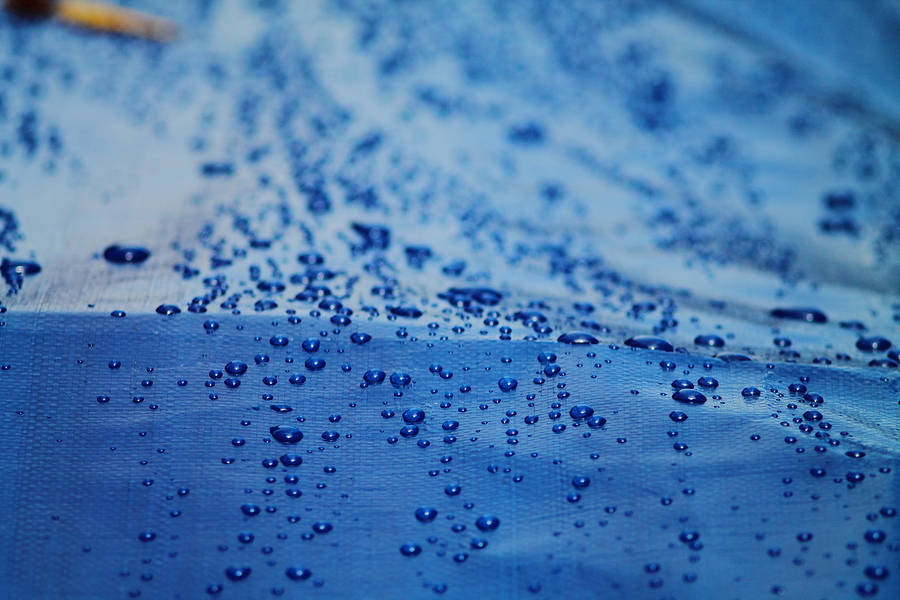Tarps are used in so many situations. In winter, tarps cover outdoor pools, stacks of firewood, and patio furniture. They’re sun shades, temporary walls to cut wind or inclement weather from worksites or porches, and shelters when camping. By choosing the right tarp for the job, you get a tarp that’s going to last. What happens if it gets a rip or tear? Do you have to throw it out and buy new?
You may not have a damaged tarp. You’ve found a great deal on two small tarps and want to glue them together to create a larger tarp. You can join the tarps together using glue, but you should look into custom tarp sizes. You’ll get a stronger tarp this way.
Some glues repair torn and ripped tarps. You could use them to join tarps together, too. Choosing the best glue for tarps involves careful thought. You need to consider these questions.
What Kind of Tarp Do You Have?
What kind of tarp is ripped or needs a patch? The glue you’ll use to repair a canvas tarp isn’t going to be the same glue you’d use on a vinyl or PVC tarp. You have to know what material your tarp is made from. If you’re not certain, take the time to look at images of tarps online.
Canvas – Canvas tarps can be colored or the natural off-white color. They’re made from cotton and may have a coating to make it waterproof or fire retardant. These are the tarps commonly used for camping or cargo covers.
Iron Horse – Iron Horse polyester tarps are thick and durable. They’re stronger than canvas tarps. Plus, they’re waterproof. If you have a heavier tarp that water flows right off, it could well be an Iron Horse tarp.
Mesh – Mesh tarps are going to have small holes for the air to pass through. Think of these as the tarps that resemble window screens.
Poly – Think of polyethylene tarps as the blue, green, or silver tarps you find in discount stores. They have that woven look and plastic-like feel. They do come in different weights, however, so some will be thicker than others.
PVC – PVC tarps are waterproof and clear. Think of them as a clear shower liner.
Vinyl – Vinyl tarps are strong. They stand up to acids and grease. They’re also unlikely to rip or tear as they’re designed for industrial use.
If you can identify your tarp, that will help you find the right glue. If you’re not sure, you may need to try tarp glues in a test patch. See which holds best before you commit to fixing the entire rip or tear or joining the tarps together.
What Are the Differences Between HH-66 Vinyl Cement and Tear Mender Fabric Cement?
Chicago Canvas & Supply sells two types of tarp glue. HH-66 vinyl cement is a very strong, waterproof glue that dries in less than five minutes. When dried, it flexes with the material and stands up to very hot, very cold, or other weather extremes. It’s a good glue to use when fixing or patching vinyl-coated or vinyl-laminated tarps.
If you have a canvas tarp that needs repairs, look at Bish’s Original Tear Mender fabric cement. This is a non-toxic latex-based glue that’s best for fabric tarps. It’s waterproof and dries within three minutes.
How Can You Extend Your Tarp’s Life?
Eliminate some risk of rips and tears by making sure you have the right tarp. If you’re covering firewood, you need a tarp that withstands winter’s wind, rain, and snow. A lightweight tarp that you’ll find in discount retailers is too light. By spring, you may find the weight of snow and ice and the sharp corners of the firewood have torn the material. Pick a heavy-duty tarp with UV protection that is waterproof and resists mildew.
When the tarp is not being used, prepare it for storage. Spray any dirt and residue off it and allow it to dry completely. If you have a clothesline, hang the tarp from the clothesline to keep it off the ground. Canvas tarps may benefit from a new application of Canvak to maintain the protection from water and mildew. Once the tarp is completely dry, fold it and store it in a mouse-proof container.
Finally, repair rips when they’re small. If they get too large or the fabric starts to shred, you may find it is too late to make a repair that will last. You’ll have to purchase a new tarp.
Glued tarps may work well at first, but the seam may start to come apart at an inconvenient time. Chicago Canvas & Supply is happy to customize many of the tarp options to match your requirements. Contact us for help choosing the right tarp for your needs. We can also help with custom tarp sizes or tarp glues and preservatives. Chat with us online to get the answers and advice you need regarding tarp repairs or replacement.





